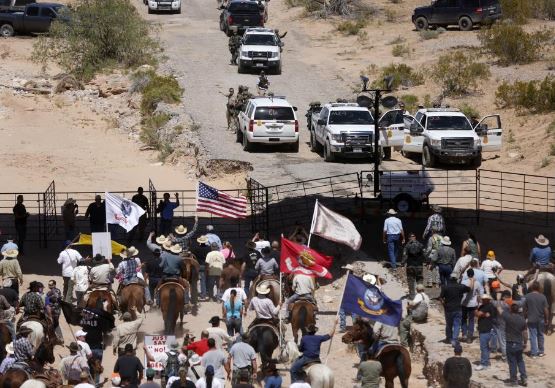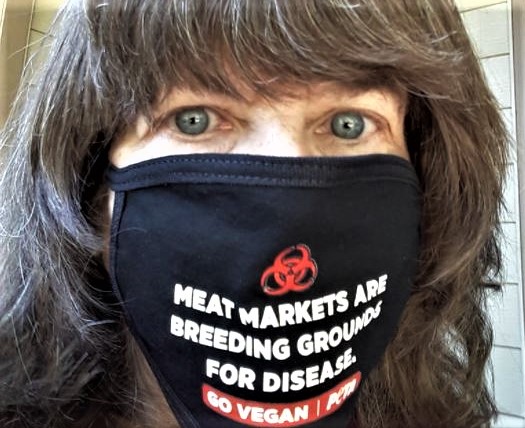By Amy Joi O’Donoghue for DESERET NEWS
The war on beef in the West
Public lands grazing for livestock is under growing pressure
When Colorado Gov. Jared Polis declared March 20 as “Meatout Day,” urging residents to consume an alternative protein to meat, he provoked a bull market on the consumption of hamburgers, steaks, lamb chops and other meat products as consumers rushed to fill their plates.
The agriculture industry, which is the second largest in Colorado producing a value of $47 billion, reacted angrily as well and governors from at least two other states — Wyoming and Nebraska — cheerfully declared March 20 as a day that stands in support of meat.
Would Utah Gov. Spencer Cox, with his rural roots deeply planted in Sanpete County, ever, ever consider making a similar meatless proclamation?
That would be a resounding no.
“You won’t find a governor more supportive of our farmers and ranchers and defending grazing on public lands. Every day is Meat Day in Utah,” he said.
But animal production for food, including livestock grazing on public lands, is under increasing pressure across landscapes punctuated with lawsuits directed against federal land managers by environmental groups and political campaigns launched by animal rights activists.
:no_upscale()/cdn.vox-cdn.com/uploads/chorus_asset/file/22425188/merlin_2863695.jpg)
Many cattle producers believe there’s an outright war on beef.
“Are we under assault? Very much so,” said Shawn Martini, vice president of advocacy with the Colorado Farm Bureau.
“That’s why you saw such a huge fallout from the governor’s proclamation, which had no force of law. But overall, it goes to the threat the industry is facing that something like that could generate such a huge backlash in this state and around the country.”
The Colorado Farm Bureau is a member of a coalition fighting an “animal cruelty” initiative that could be on the ballot in 2022.
Its provisions include a prohibition of sexual contact with an animal by a person involving the animal’s genitals or anus, but it does not exempt generally accepted animal husbandry practices used in the care of horses, livestock, pigs, ducks, poultry, working police dogs or working police horses.
Martini says that means the gelding of livestock or the practice of artificial insemination would be banned, as would pregnancy checks or embryo transfers.
The coalition fears that the general public will simply view the initiative — if it makes it to the ballot — as a ban on sex with animals and not read the fine print.
That fine print also includes provisions that define natural life spans of animals and then requires that the animals live out at least a quarter of their life before slaughter.
A cow lives to 20 years, for example, so that provision would require the animal not be slaughtered until age 5, instead of 18 months, as is what happens.
Martini said the extended life span would ruin the chance of getting tender beef cuts, drive up ranchers’ costs and eviscerate the agriculture industry.
In addition, the Colorado ballot proposal says animals like those used in rodeos or hunting dogs should not be “overworked,” which Martini says has professional rodeo associations worried, as well as hunters and county fair organizers.
Martini said while the effort may be promoted under the mantle of safeguarding the environment and animals, it does just the opposite.
“The quicker we can get the cattle to weight and into the food supply chain, the better it is for the climate and sustainability practices because you are reducing the overall emissions from those animals,” he said.
A Colorado hearing in which the ballot proposal is being challenged was held Wednesday.
:no_upscale()/cdn.vox-cdn.com/uploads/chorus_asset/file/22425173/merlin_2863681.jpg)
‘Goal to destroy agriculture 100%’
Could similar animal activism creep into Utah? Utah Farm Bureau President Ron Gibson said it’s already here.
“They have discovered Utah and it is something we are going to have to deal with,” he said. “We are going to have to have a strategy, and we are going to need people to put out good information.”
Such a proposal prohibiting animal contact, he said, could wipe out the dairy industry because of contact with udders for milking and the use of artificial insemination.
He said Utah egg producers worked with lawmakers this last legislative session on a bill mandating cage-free conditions for hens by 2025,
Although it will cost producers nearly $200 million to retrofit their farms, Gibson said there was general support for the measure under threats that a referendum like Colorado’s would surface in Utah.
“It is about their goal to destroy agriculture 100%,” Gibson said.




Thank you Chance !! Let us know what we can do to help to support an organization.
As the Science Editor for RANGE MAGAZINE I have been fighting this sort of craziness for decades. In addition to working for RANGE I’m a consulting biologist with my practice limited to cattle ranches. This is but one facet of a multi-pronged attack on the livestock industry across this great nation of ours. We used to have NCBA (National Cattlemen’s Beef Association) to represent the interests of stockmen across the country. Unfortunately, long ago they abandoned the western ranches and now, the little good that they do (which isn’t much) is focused on the large feedlots in the mid-west.
We need to develop a group with the strength of all our numbers, a group that will hire lobbyists and attorneys and PR people to highlight the huge value the cattle industry provides for this country and the world. RANGE has been getting the word out for nearly 30 years. But in addition to this we need a proactive organization that speaks for the working cowboy and the rich heritage of the western ranchers. I’m going to broach this subject with CJ Hadley on our next meeting. Till then: Hang in there and Don’t Let The Bastards Get You Down!
Say Each State needs to simply Take the federal land within said State’s borders.
The feds can go back to wherever feds came from.